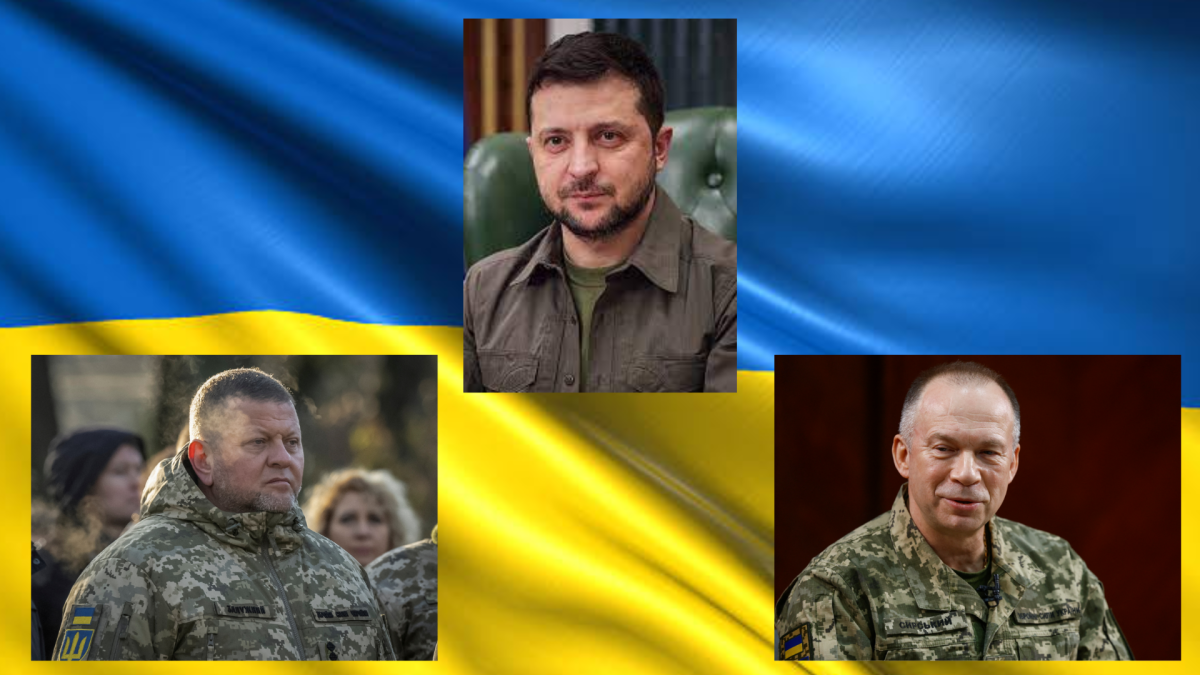On Feb. 8, Ukrainian President Volodymyr Zelensky announced his decision to dismiss the nation’s top military commander, General Valerii Zaluzhnyi, marking the biggest shift in military personnel since Russia’s invasion began two years ago.
Zauzhnyi’s replacement will be Oleksandr Syrskyi, who has served as the Commander of Ukrainian Land Forces since 2019. Rumors of Zaluzhnyi’s dismissal from his position began to circulate after he was allegedly called to a meeting at the president’s office and informed he was being relieved of his duties. The move comes after weeks of speculation that Zelensky and Zaluzhnyi were clashing over frontline strategy, ending speculation about the fate of Ukraine’s top military commander, whose relationship with Zelensky deteriorated after the nation failed to make significant advances in its counteroffensive.
AP European History teacher Kristy Pommerenke-Schneider speaks on her thoughts after witnessing Zaluzhnyi’s dismissal from power, referencing the extent of the implications that this decision will bring about.
“There were leaks about the ousting of the general for a good couple weeks before it actually became official,” Pommerenke-Schneider said. “Ukraine is having many challenges, of which artillery is one of them, and Zelensky is in his right as the president of the country to try to figure out a new approach. There are more complications than just [Ukraine’s] top general. A lot of this has to do with international support.”
Differences between Zelensky and Zaluzhnyi, though growing in tension over the past few months, seemed to widen towards the end of 2023, after Zaluzhnyi falsely claimed the war had reached a stalemate. After Ukraine’s counteroffensive was thwarted by fortified Russian defenses, he warned that without significant technological advances “there will most likely be no deep and beautiful breakthrough,” but instead a mass of devastating losses and destruction. Zaluzhnyi publicly expressed his frustrations over the issue in an editorial in The Economist, stating that “the inability of state institutions in Ukraine to improve the manpower levels of our armed forces without the use of unpopular measures”, remarks which were considered unusual for a man known for his reluctance to engage in public display.
On the flip side, Zaluzhnyi’s firing represents a major political gamble for Zelensky. As a popular figure who embodied Ukraine’s fighting spirit, Zaluzhnyi is still widely respected both at home and abroad and the former military chief remains popular among the nation’s citizens. According to a poll conducted by the Kyiv Institute of Sociology, 88% of Ukrainians claimed to support the general, while support for Zelensky fell from 84 percent at the end of 2022 to 62 percent at the end of 2023. The decision to remove the senior military leadership in the midst of an enemy offensive poses additional risks, including a disruption to operational planning, and a lack of senior commanders to draw on for general staff posts.
Pommerenke-Schneider talks about the proven danger of implementing a isolationist foreign policy.
“[Through] those people who study history, we see these patterns and we see that isolationist policies are irresponsible,” Pommerenke-Schneider said. “All you have to do is look back to the 20th century. We live in a global society and you have some immoral leaders around the world. There’s a reason for alliance systems, there’s a reason for NATO. We need to stick together to try to create a safer world for everybody.”
On the other side of the globe, failure by the US Congress to agree to grant military aid for Ukraine after the previous support ran out in December has dimmed hopes of progress. Although the US has been Kyiv’s largest provider of military aid, some Republicans, particularly supporters of Donald Trump, have blocked billions of dollars in funding amid tension arising from immigration on the US-Mexico border.
Meanwhile, 59-year-old Oleksandr Syrskyi, who began his soldiering career during the last years of the Soviet Union and eventually rose through the ranks of the Ukrainian armed forces to become a Major General in 2009, will be tasked with dealing with the 600-mile frontline, most of which has made minimal progress as Russia aspires to expand its land claims in areas of eastern and northern Ukraine. His attempt to alter the projected course of the conflict will be one carefully scrutinzed by a global audience.









